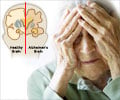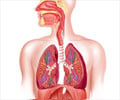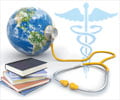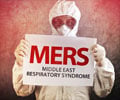- Breast cancer is the most commonly diagnosed cancer in women (1✔ ✔Trusted Source
Key Statistics for Breast Cancer
Go to source). - The risk of breast cancer increases with age and if you live to 90 years your risk of developing this cancer is almost 14%(2✔ ✔Trusted Source
Breast cancer
Go to source). - A total of 2.3 million breast cancers were diagnosed worldwide and approximately 685,000 women died due to breast cancer in 2020 (2✔ ✔Trusted Source
Breast cancer
Go to source). - North America, Australia and Europe have the highest incidence and large parts of Africa and Asia have the lowest rates of breast cancer.
- In the last 25 years the incidence of breast cancer has gone up by 30% in the western world.
- Increased risk of developing breast cancer include:
- Start of menstrual period at an early age
- Menopause later in life
- Having a first or second degree relative with breast cancer
- Obesity
- Consumption of alcohol
- Never having children
- Using contraceptives
- Using hormone replacement therapy during post-menopausal years
- Certain inherited genetic mutations for breast cancer (BRCA1 and/or BRCA2)(3✔ ✔Trusted Source
Use of statistics to assess the global burden of breast cancer
Go to source) - Decreased breast cancer risk can be observed by:
- Breast feeding
- Moderate physical activity
- Maintaining normal weight
- Stop smoking(3✔ ✔Trusted Source
Use of statistics to assess the global burden of breast cancer
Go to source) - Breast cancer can be prevented by screening (4✔ ✔Trusted Source
Allied Against Cancer
Go to source) - One hour of exercise each day reduces breast cancer risk by 25%
- Early treatment can increase chances of 5 years survival to 98%(5✔ ✔Trusted Source
Understanding Breast Cancer Risk
Go to source) - Women with a BRCA mutation who get their ovaries surgically removed can reduce their risk of breast cancer by over 50%.
- A study from North Carolina State University indicated that Women who performed the act of fellatio and swallow semen regularly (one to two times a week) may reduce their risk of breast cancer by up to 40 percent!!
Advertisement
References:
- Key Statistics for Breast Cancer - (https://www.cancer.org/cancer/breast-cancer/about/how-common-is-breast-cancer.html)
- Breast cancer - (https://www.who.int/news-room/fact-sheets/detail/breast-cancer#:~:text=In%202020%2C%20there%20were%202.3,the%20world#$#s%20most%20prevalent%20cancer.)
- Parkin, D. M., & Fernández, L. M. G. (2006). Use of statistics to assess the global burden of breast cancer. Breast Journal, 12(Suppl. 1), S70-S80.
- Allied Against Cancer - (https://www.cancer.org/docroot/CRI/content/CRI_2_4_2X_Can_breast_cancer_be_prevented_5.asp
- Understanding Breast Cancer Risk - (https://www.breastcancer.org/risk/understanding-risk)




















That alleged study regarding fellatio was a hoax!!!! It is a shame to see this put on a medical website.